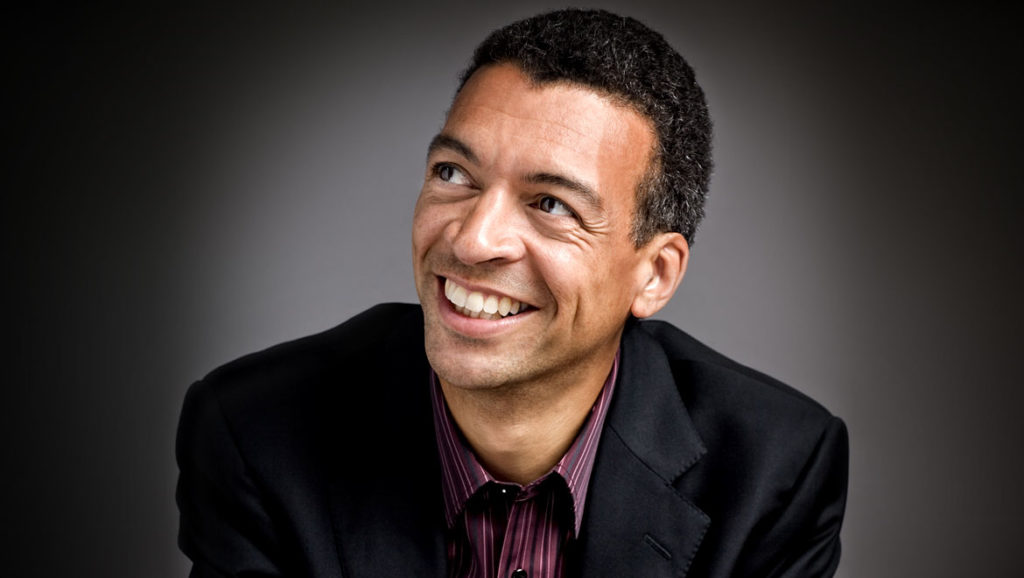
Leeds Lieder Festival, Day 4: James Gilchrist / Finale, Leeds Town Hall, 20/6/2021
A PARTICULARLY well-structured programme, entitled O Solitude, occurred at lunchtime on the final day, with tenor James Gilchrist and his piano-partner of more than two decades, Anna Tillbrook.
Using Purcell’s eponymous song as his springboard, he then embarked on Schubert’s Einsamkeit, three of Barber’s Hermit Songs and a cycle Gilchrist had commissioned in 2017 from Jonathan Dove, Under Alter’d Skies.
During the Purcell, given in Britten’s realisation, we could only marvel at the range of vocal invention the composer achieved in no less than 28 repetitions of a ground bass. Gilchrist positively revelled in its drooping intervals, penetrating the bitter-sweet pleasures of the Katherine Philips poem (itself a translation from Marc-Antoine de Gérard).
It cannot be emphasized enough that the Schubert is his earliest song-cycle (1818), being six poems by Mayrhofer tagged together on the model of Beethoven’s An Die Ferne Geliebte, which was written two years earlier. The poetry outlines a life-cycle, beginning and ending with a wish for solitude, after progressing through a desire for activity, good fellowship, bliss and gloom in turn.

Gilchrist brought to it his own special brand of urgency, sometimes bordering on missionary zeal, in which he contrasted the various moods with an underlying yearning for nature. Thus the rat-race was tinged with regret. Even the central waltz dissolved into rueful recitative. Tilbrook’s fine support peaked in the militaristic regions of the ‘rapture’ section. It was a splendid account of a work that is seriously underperformed.
He chose three of Barber’s ten Hermit Songs, which are settings of early mediaeval poems in modern translations. Their spare harmonies certainly speak of a less complicated era, but heard in Schubert’s wake they lacked a certain humanity. The Monk And His Cat conjured the warmest response.
Jonathan Dove selected seven cantos (out of 133) from Tennyson’s In Memoriam for his cycle Under Alter’d Skies. They deal with the solitude after a close friendship has ended, in Tennyson’s case after the early death of his close friend Arthur Hallam. Dove handles this tricky task with admirable composure and Gilchrist at first suppressed his natural enthusiasm to reflect the poet’s inner turmoil.
Change came in Tonight The Winds Begin To Rise, where the piano’s moto perpetuo was reflected in the tenor’s mounting urgency, and a ‘gleam of solace’ broke through in the upward-rushing phrases of the following song, With Weary Steps. After a return of disillusion and an ironic peace, Dove (with Tennyson) finally detects balm in nature, echoing Mayrhofer, which was pictured in a rising tide of emotion from both performers. Dove’s cycle is well worth the love that this duo lavished on it.
The whole of this programme, including the Barber cycle in its entirety, was issued only last summer on the Chandos label. On this evidence, it’s a must-buy.
* * * *

THE closing recital was a pot-pourri devised and performed by soprano Carolyn Sampson, baritone Roderick Williams and pianist and festival director Joseph Middleton. Here were songs traditionally reserved for a female voice sung by a male, and vice versa. Apart from some other musical byplay, we had a new commission by Leeds Lieder from Hannah Kendall. Finally, the audience was given a list of three dozen songs, some in German, others in English, and allowed to choose what should be sung.
Sampson opened up with two songs from Schubert’s Die Schöne Müllerin – normally male territory, of course. She loved it and so did we. In ‘Mein’, she soared and so did the piano. She also produced a magical ending to ‘Pause’. Getting his own back, Williams took two songs out of Schumann’s Frauenliebe Und–Leben with his tongue firmly in his cheek, enjoying every minute of it.
With gender politics now firmly on the menu, Hannah Kendall’s new work Rosalind set parts of five poems by Sabrina Mahfouz. The first-person narrator here seemed to veer between femaleness and maleness like a chameleon, reacting to outside influences – until at the end speaking boldly as a woman: “You do not get to dress me anymore”.

Kendall found a great deal more variety in her piano accompaniments than in her treatment of the voices, which was generally limited to slow-moving, ruminative lines that cannot have taxed these singers. It was hard not to feel that this was an opportunity if not wasted, at least under-exploited. But her 15-minute score fell easily on the ear and the texts emerged clearly.
The remainder of the evening relied on a roving microphone picking up viewpoints from the audience, before the brave decision to accept requests. All were accepted graciously, with Sampson excelling in Schumann’s Röselein and Williams making hay with York composer George Butterworth’s Loveliest Of Trees and Britten’s arrangement of The Foggy, Foggy Dew.
Middleton proved himself extremely versatile, as ever. The consistently high calibre of the performances made up for the improvisational nature of much of the proceedings.
Martin Dreyer
